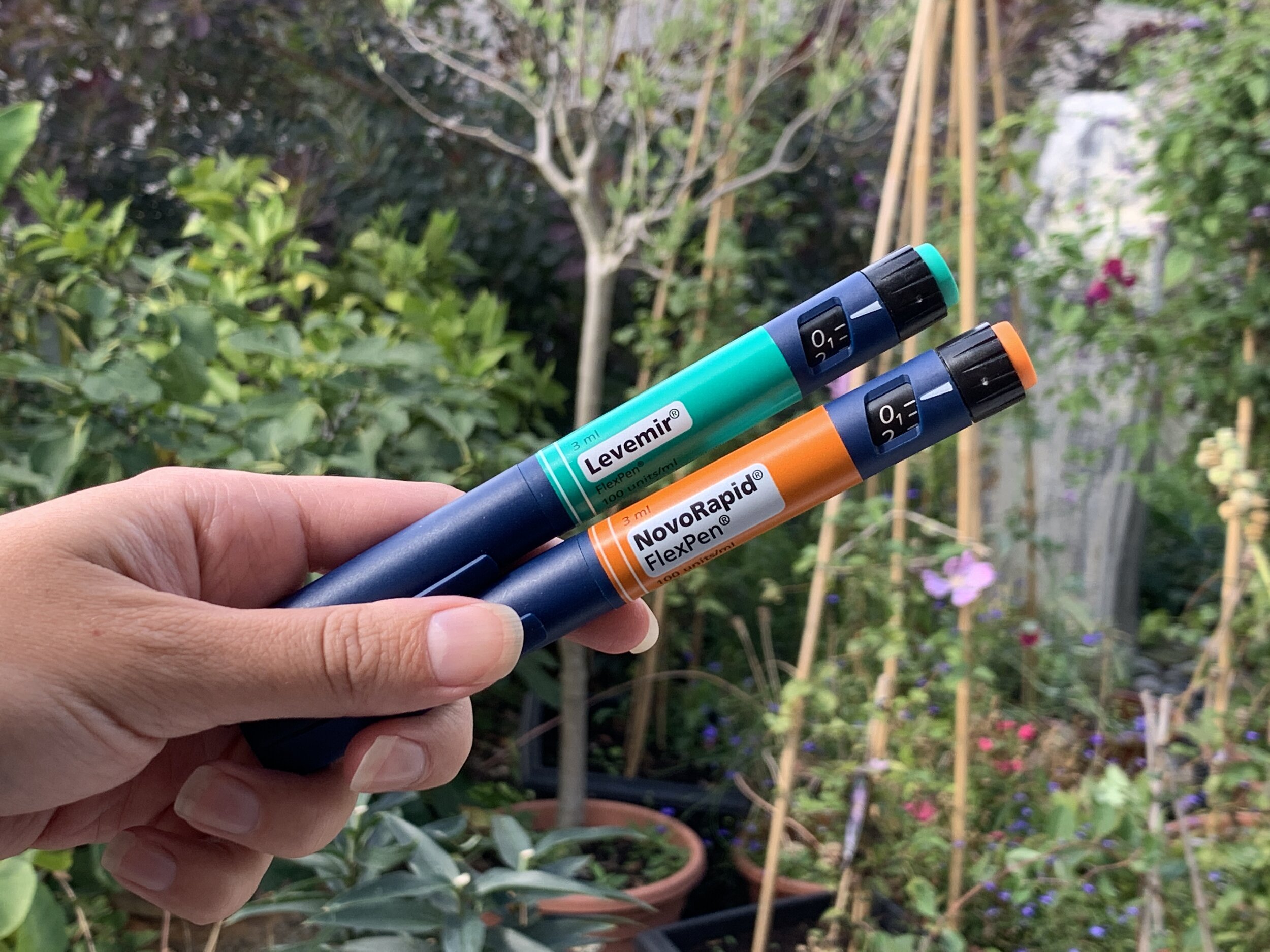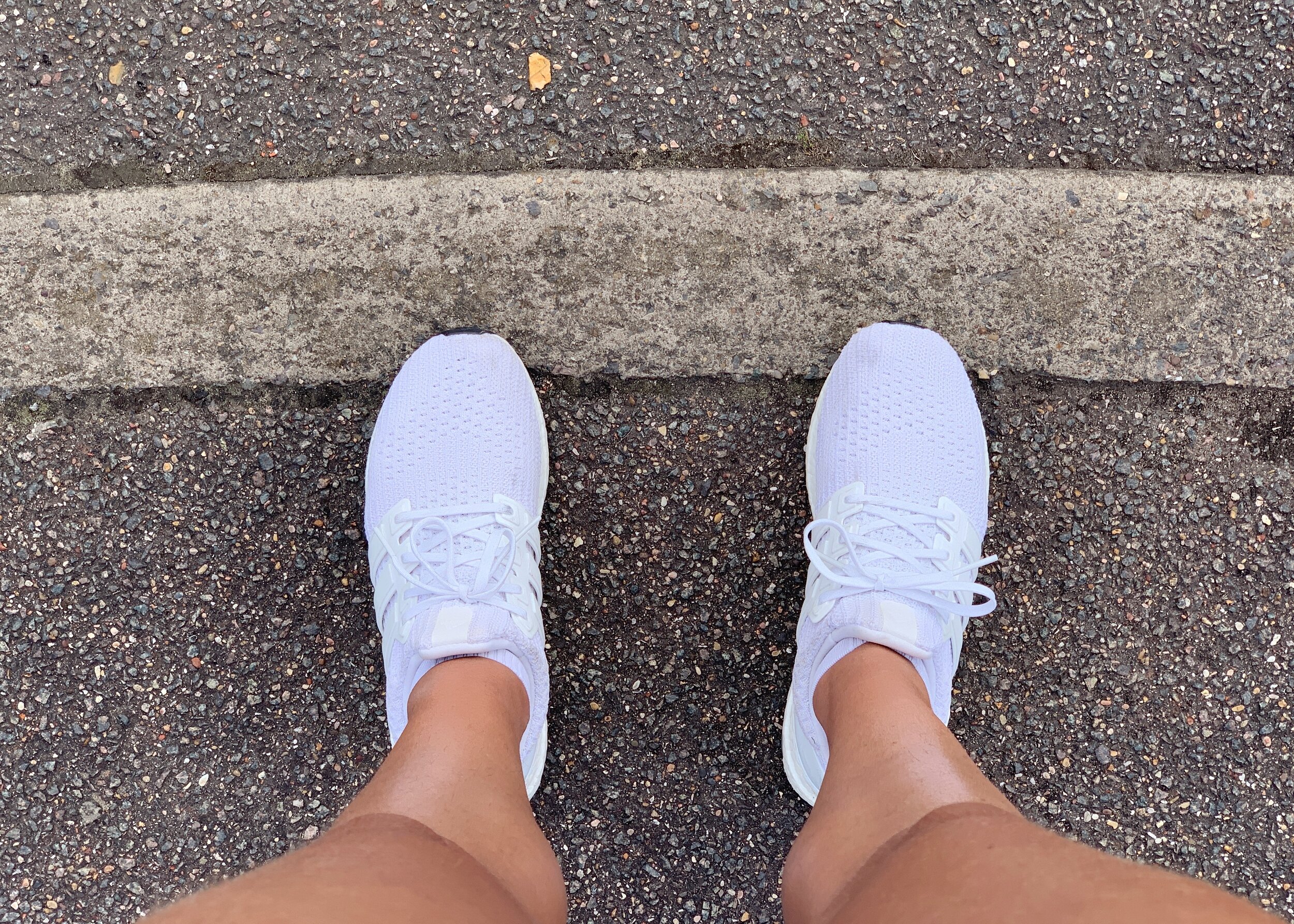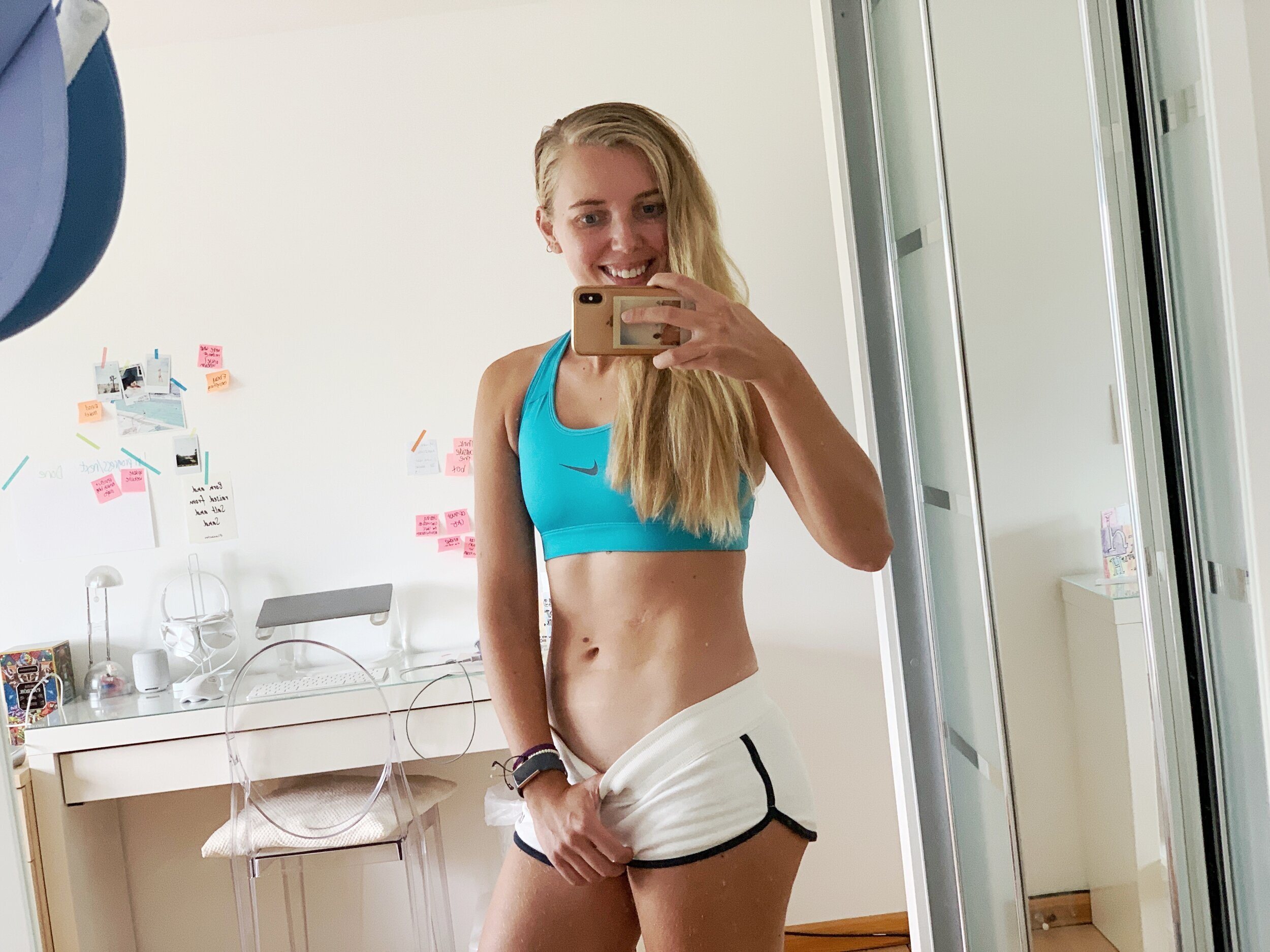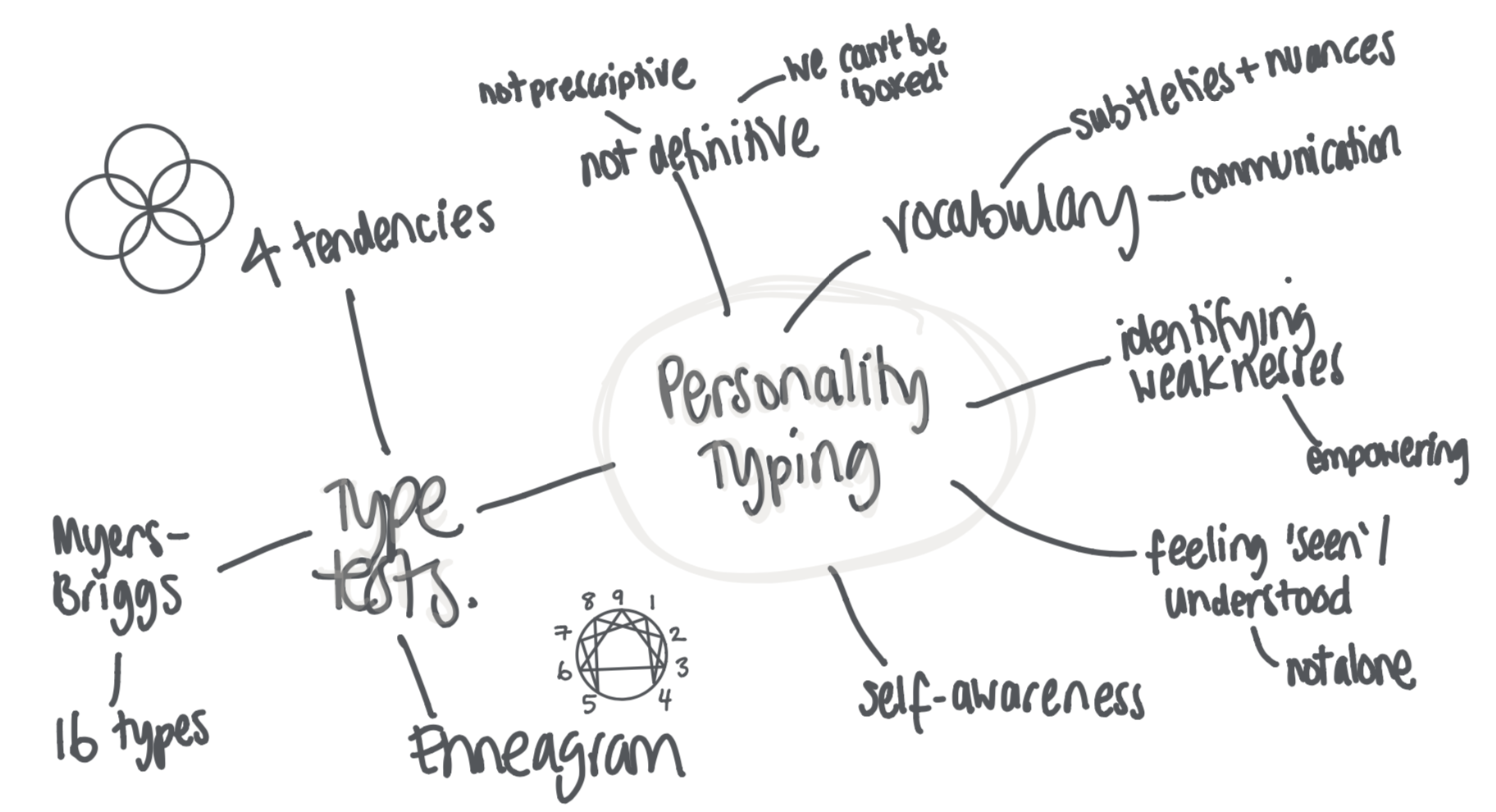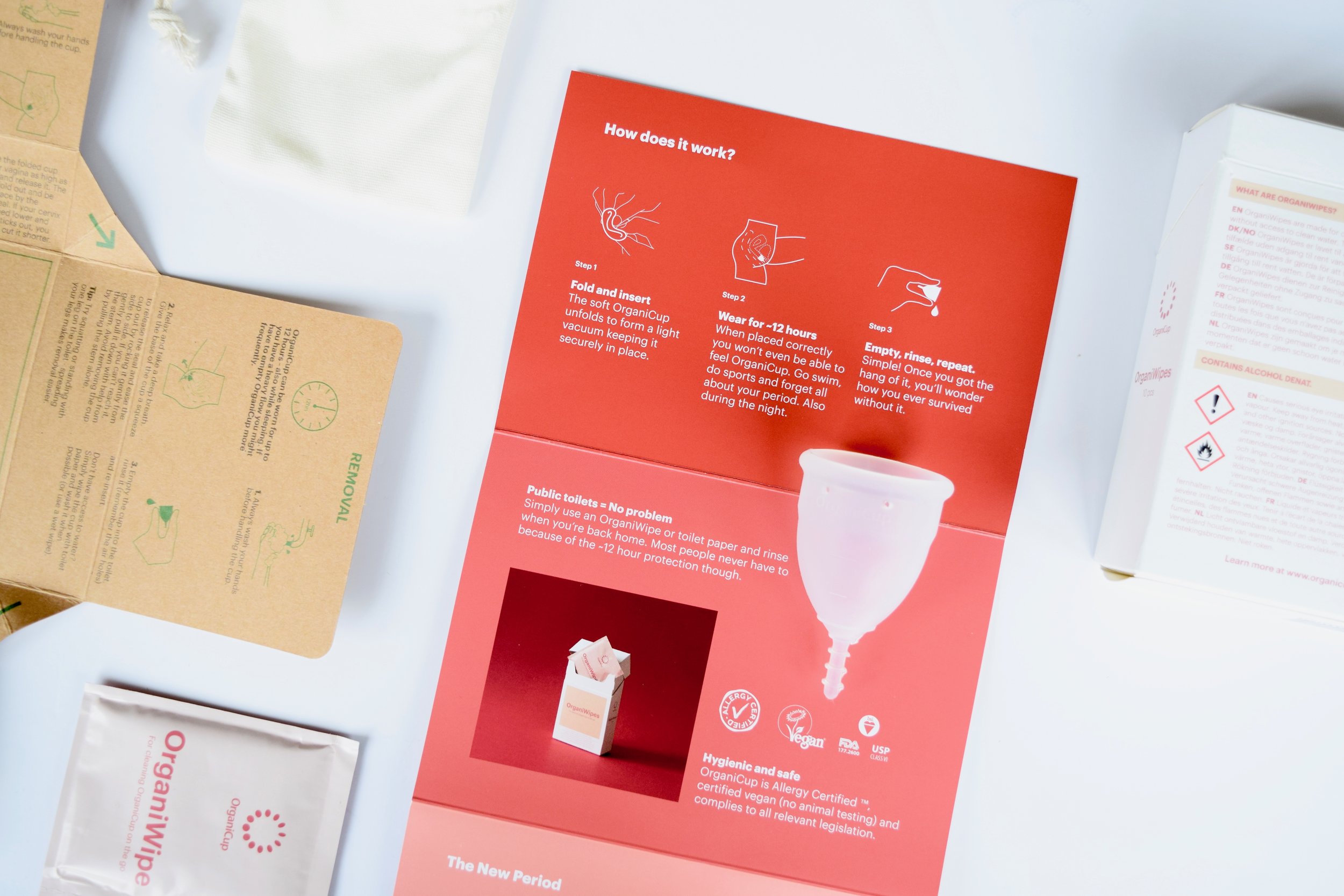
Health, fitness + wellbeing
Articles from Natalie’s blog (est. 2012) covering health from multiple perspectives, including:
holistic wellbeing (including mental, physical, emotional and spiritual wellness), biohacking, natural living, and life with a chronic condition (including personal experiences with cystic fibrosis and diabetes).
How I keep my digestive system happy with cystic fibrosis
If you have, or have heard of cystic fibrosis, you will likely know that digestive system management is pretty much a full time job. From calculating fats and carbs to digestive enzymes and insulin, as well as dealing with the CF symptoms that can occur.
Over the last few years I’ve learnt some tricks that help me to better manage my digestive health and keep my tummy happy.
I’m so happy that I’ve finally put this in a blog post - both for my own documentation, but also to give anyone that needs it some ideas of tweaks that you can experiment with.
I talk about: what I do and don’t eat, what I do and don’t drink, what kind of movement helps, hormonal considerations
Mindful Airway Clearance for Cystic Fibrosis
I used to really struggle with using airway clearance devices like flutter and acapella.
I found I got restless. I got bored. I got distracted.
I could go months or years without using certain types of airway clearance equipment, because I just didn’t get on with it. I used different methods that were less reliant on breathing into a device. While we don’t have the vest readily available in the UK, I can understand why people choose this passive airway clearance technique.
The thing is, I have come to realise, over years of doing different types of physical activity and different types of breathing exercise, that breath awareness and an active breath (versus passive) is far more effective.
I’m writing this because for the first time in years today, I decided to pick up my flutter and give it a go.
Why did I do this? And why did I find I was able to finally feel that I was able to do this effectively?
How I Diagnosed Myself with CF-Related Diabetes
I was diagnosed with cystic fibrosis-related diabetes (CFRD) in the summer of 2018. I think the official diagnosis came late August when I was first prescribed insulin, though it was my glucose tolerance test at my annual review appointment in April that first hinted at the diagnosis.
It was really my own self-awareness that ultimately resulted in me asking for insulin when I needed it, as I felt I couldn’t wait any longer for someone else to make that call. Knowing my body as well as I did, meant that I was making correlations that my Drs weren’t, and it may have saved my health from getting a lot worse. So, I wanted to share the things that led to me pushing for a CFRD diagnosis and the insulin prescription that I needed.
Running for airway clearance with cystic fibrosis
I’ve never been much of a runner. I’ve tried at various points in my life.
The reason I keep trying is because I know that it’s really good for my lungs. Living with cystic fibrosis, I have to put a lot of time and effort into keeping my lungs clear and healthy, and one of the things that gives me the biggest bang for my buck when it comes to airway clearance is running. Well, jogging, in my case...
Designing my Mindful core training programme
When doing core/ab workouts, I often felt like my breathing wasn’t controlled. I felt like I was breathing shallowly and erratically. Sometimes both. I felt like I was tense in places that I shouldn’t be tense. Especially in my shoulders and neck, which probably affected my breathing. I felt like I was rushing to get reps or to fill timed intervals. It was rare that I could actually feel the movement itself. Instead, I could only feel the discomfort of it.
Does any of this sound familiar to you? If so, the good news is that it can get better!
My Symkevi Experience: Am I actually having to work harder?
I started taking my first CFTR modulator drug - Symkevi - on 31st January 2020, after it was made available on the NHS in the UK.
For someone with cystic fibrosis (CF), I consider myself really healthy. But, with each year that’s passed until now, maintaining good health has taken more and more work. My hope for starting Symkevi was that I would have to work a little less hard to maintain the health that I have now. But the changes that I saw in myself have actually been very different than that… Am I actually working harder?
Why 4 sinus rinses a day improves my health
People seem to be suffering with sinus issues more and more. So, as we’re well into allergy season (a lot of tree pollens start to build from March), I’ve already stepped up my sinus care regime and found myself seeing friends and family following suit as they see the benefits I get.
Reducing Waste: What To Do With Medical Inhalers
Outside of the obvious, I find the amount of waste that I produce really frustrating. If I want to stay healthy, I have to take my medication. If I take my medication, I have a tremendous amount of packaging to deal with.
Inhalers are one area that I’ve been trying to become extra conscious of.
Talking about recently: personality tests and types
I think we all enjoy this kind of thing on some level. It’s human nature to want to understand ourselves and others. But recently, as I’ve increasingly delved more and more into realms of self-development and spirituality, I’ve found the concept of personality tests even more fascinating…
I've been wearing an anti-pollution mask around London
Today is Clean Air Day. I'm writing this article because too many of us do not breathe clean air. We suffer health problems and die too soon because we do not breathe clean air. That needs to change.
This is a topic that I've been talking about a lot lately, especially after the World Health Organisation released new data on air pollutionlast month, including stats like:
9 out of 10 people worldwide breathe polluted air; and
Air pollution causes 1 in 9 deaths worldwide.
I was invited be part of a Channel 4 News feature to help raise awareness on how air pollution affects people with cystic fibrosis. You can see my (very short!) clip in this piece on the UK’s most polluted areas.
Ten months on: "I quit my job. Now what?"
Ten months ago, I quit my job to save my health. You can read more about why I did that in my article from October 2017.
Last month, I was featured talking about my career change in the latest issue of CF Life magazine from the Cystic Fibrosis Trust, so I thought now would be a great time to write an update on what has changed since I left a high-pressure, full-time job last summer.
8 Reasons to Use a Menstrual Cup
I’ve had a lot of conversations with my female friends lately about the benefits of using menstrual cups instead ‘conventional’ products at that time of month.
From the dozens of conversations I’ve had, I can tell you that the benefits of using a menstrual cup are pretty compelling, so I thought it was time I shared a little more information...
Is lactose intolerance as common as you think? What it is, how to test + my lactose intolerance results
I’ve written quite a lot about food intolerance since I’ve suffered with a lot of digestive issues myself and needed to control them to optimise my own health. While I gave an overview of types of food intolerance in this guide, I’ve not covered lactose intolerance specifically.
A lot of people seem to report lactose intolerance, but it actually seems to be commonly misunderstood. Did you know, for example, that lactose intolerance is thought to affect only around 5-16% of people in the UK? A far lower number than I often see being thrown around on social media.
Because of these kinds of misunderstandings, a lot of people self-diagnose or follow overly-restrictive diets.
There was a point in time where I suspected that I had issues digesting milk. I didn’t know if it was due to a milk protein, lactose, or perhaps something else in my diet entirely, that I happened to consume at the same time.
While I have tried to reduce my cow’s milk intake for sustainability reasons anyway, I felt it was important, from a health perspective, to better understand what could be negatively affecting my body. So, I took a lactose intolerance test.
This article draws from my own experience as well as research into exactly what lactose intolerance is, why the rates vary among different populations around the world, how you can test to see if you actually have it.
But before we get started, here’s a fun fact: when I was younger, I thought that ‘lactose intolerance’ was ‘like toast and tolerance’ and was some kind of idiom that I didn’t properly understand yet.
Thankfully, I understand it now. So here we go.
Guide to Omega Fatty Acids + Supplementing with Omega-3
The importance of omega fatty acids in your diet can’t be ignored. Omega-rich foods are crucial in my diet and omega supplements are a non-negotiable staple in my supplement stack. If you want to optimise your health, you may want to pop them in yours too. Here's why:
It is said that we evolved on a diet with a ratio of omega-6 to omega-3 of approximately 1:1 [ 1 ]. In Western diets, this ratio is now said to be at least 10:1, with some sources suggesting that some individuals have a ratio as high as 25:1.
Essentially, we are getting too much omega-6 and not enough omega-3. And it’s making us sick.
These shockingly high ratios of omega-6 to omega-3 are one of the reasons why many diseases that are caused by or linked to inflammation (arthritis, allergies, heart trouble, Alzheimer’s, depression and cancer) are becoming epidemics in Western countries.
I have a chronic condition myself, Cystic Fibrosis, which is characterised and worsened by inflammation. So I’ve learnt as much as omegas from how to optimise your omega-3 to omega-6 balance and omega-3 and -6 testing, to the different types of omega supplements.
Unsurprisingly, the deeper I delved, the more questions I had and no single book, journal or web page could answer them all comprehensively. So this article pulls most of what I learnt together in a way that I hope will help you too. For that reason, it’s a bit of a long one - more of a guide, really (okay, it's an absolute monster of an article!) - but I’ve done my best to split it up into easy-to-digest sections.
I hope that you learn at least one thing from it and that it inspires you to make simple changes to improve your health long-term.
How to choose a Level 2 Fitness Instructor course: my Experience with Lifetime Training
Last year I qualified as a Level 2 Fitness Instructor with Lifetime Training. I did this as part of the FitEx Award, which also includes 2 Les Mills modules.
There seems to be a rise in people looking to take fitness qualifications, either to move into an active role within the fitness industry or to simply improve their own knowledge. (Are you the former or the latter? Let me know in the comments section!) With this, lots of people have questions about what the courses entail, how you can prepare for them and what they qualify you to do upon completion.
Especially since course providers aren’t generally very forthcoming with the intricate details of their courses, it makes it really hard to compare options. So, I’m sharing my experience with Lifetime Training in the hope it might give you a little insight...
I quit my job to save my health
A lot of people have a job that negatively impacts their health to some extent. It might be mental health, or it might be physical health. Perhaps your stress levels are too high, perhaps you don’t sleep properly, perhaps you skip meals or buy junk food or have extremely low activity levels because of your job. If so, you need to make a change.
Employers may tell you ‘health comes first’. But often, it seems insincere: something that HR have told them to say so that they don’t get sued for neglecting occupational health.
Sometimes when people have said it, ‘health comes first’, I’ve believed that they really do think that health _should_ come first. But does it? No. Not until you’re hospitalised (or threatening to leave your job) and they are forced to be accommodating or risk losing you permanently. Or, even if they believe it with every bone in their body, perhaps they just don’t have the resources or authority to actually make ‘health first’ a reality.
But whatever the situation, you should never let it get to the point where your health tangibly declines before you or your employer starts valuing it.
It’s 100% true that if you do not make time for better health now, you will have to make time for illness later.
So, with this in mind, I quit my job.
What You Should Know About Antibiotic Resistance
There are few public health issues of greater importance than antimicrobial resistance (AMR) in terms of impact on our society. This is a global crisis. And no, I’m not being dramatic. I've been affected by it myself.
While this is an issue far bigger than any one of us, we do have some control over it, if we each take responsibility and act now. By educating ourselves, and sharing information with our friends and family (and anyone else that will listen!), we are playing an important role that shouldn’t be underestimated.
4 Must-Read Books for Better Health + Nutrition
The main point I want to make with this article is that the vast majority of the information in these books should be common knowledge.
I can’t stress that enough.
It horrifies me to think that this incredibly valuable information is out there, pretty much for free, and yet some people are never exposed to it.
Here are 4 must-read books to help you improve your health + nutrition.
The Need-To-Know on Your Pelvic Floor + How Elvie Helps You To Do Your Kegels
Ladies, do you do pelvic floor exercises?
Honestly?
I’m sure, like me, you’re aware of how important they are. Yet, also like me, when it comes to training these muscles, you’ll probably remember that they exist every fortnight or so, and exercise them by squeezing ‘down there’ how ever many times you deem useful (10, 15, 20 times?) before getting distracted by something else.
Needless to say, there are lots of things wrong with training your pelvic floor muscles in this way:
* You don’t really know if you are squeezing the muscles correctly
* You aren’t sure if you are squeezing for long enough, hard enough, or a many times as you should
* You don’t have any way to measure your progress
* It’s boring as hell, making it very easy to become distracted
Thankfully, some very clever ladies out there have designed a sleek little gadget and app called Elvie to overcome all of these problems.
But first, here's why doing kegels is important in the first place...



